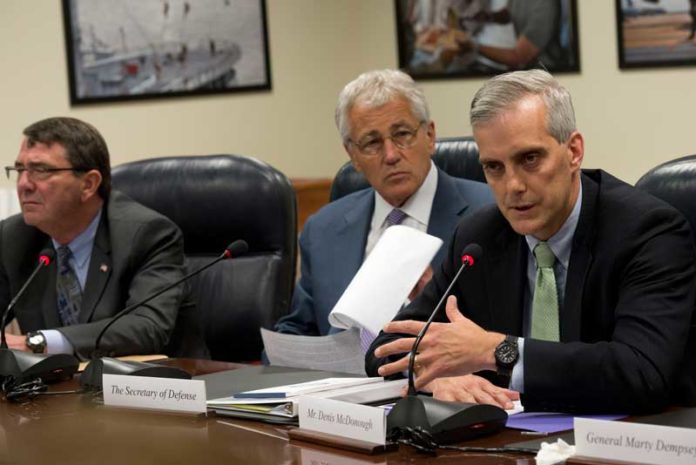Day in and day out, in media interviews. . . one after the other, leaders in politics, academia, media and entertainment often do not answer the question being asked of them by the person conducting the interview. They first avoid, deflect or brush off the question, then proceed to say whatever they want to say, with little or no reference to the question being asked.
This happens across the full political and philosophical spectrum, on both the left and right, conservative and liberal, Democrat and Republican. In some form or another, it happens on all shows, interviews and networks.
One vivid example was the exchange between Fox News Sunday host, Chris Wallace, and White House Chief of Staff, Denis McDonough. Here is an excerpt of what they said:
WALLACE: Let’s turn to domestic issues. Does President Obama realize that he lost the midterm election?
MCDONOUGH: What the president realizes and he laid this out in the speech last night is that over the course of now decades, middle class families in this country have faced unrelenting pressure as costs go up with while wages stagnate. What the president laid out in the speech on Tuesday night, is a plan to say, ‘Hey, let’s put the middle class first in the country first, close loopholes, invest in them, things like child care, job training, community college,’ and make sure that they can get the kind of opportunities that we all had when we were growing up in the middle class family, Chris. Transcript from article by Alex Griswald at the Daily Caller.
Mr. McDonough does not answer the question. Mr. McDonough gives a speech. He only pretends to answer the question. Indeed, before he pretends to answer the question, he first gives the viewer a verbal head fake. He picks up on the word “realize” used by Mr. Wallace in the actual question, and uses the word “realizes” in the first sentence of his pretend answer. Perhaps he does this hoping the viewer will make a mental pivot from the reality of a direct question, to believing the illusion of a direct answer.
It is as if using the word “realizes” becomes some form of a mental bridge to make the viewer feel more comfortable, to give some false sense of logical continuity to the interview, rather than the stark reality of a blatant disregard of the question.
This is spin, and Mr. McDonough is spinning. Mr. McDonough has an agenda, and he is using his answer to advance his agenda and sell his point of view. No news here.
But what about Mr. Wallace? Is the question a “fair” question or is the question itself, a form of spin? Is he using his question to advance his agenda?
We all have a perspective, worldview, agenda and bias.
Mr. Wallace is no exception. One way he advances his worldview agenda is by asking one question when he could just as easily ask another that would set the stage to move the discussion in a different direction. Selecting what topic to discuss and the line of inquiry about the topic is, in itself, a powerful form of setting and advancing a worldview agenda. Mr. Wallace is selling his point of view by the content of the questions he asks and the manner in which he asks them.
Fox News Sunday is a show owned by a media enterprise, Fox News. The show also has a point of view and an agenda to sell. They know their audience and the executives and producers are going ensure that the questions asked are ones that will help maintain and grow their viewership. Fox News, is a for profit corporation. It is organized around a mandate to give it’s shareholders a targeted return on their capital investment. The questions, guest selection, and perspective of the show need to be structured to captivate and hold the interest of a large and growing audience. How large? Large enough to generate the advertising revenue needed to meet their shareholders’ expected return on investment.
And what about the viewer? They have a worldview, a bias and an agenda as well. Their motivations for watching a news show may range from wanting to be informed, to wanting to having the satisfaction of seeing their point of view confirmed and reconfirmed, by watching programming in sync with their own beliefs.
Lost in all this is, dare we say, the truth.
Truth is a big word and means different things to different people. But in the context of an interview, from a common sense understanding of the word, is the truth not best served, if the person being interviewed, would please, answer the question?





























